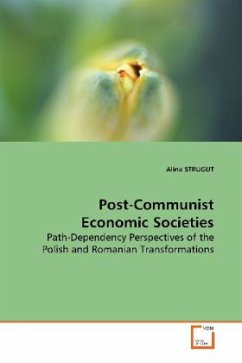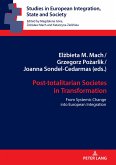Are there any blueprints that can ensure the success
of democratic consolidation? Is their efficiency
based on world wide empirical evidence that
recognizes divergent legacies of social structures
and consciousness? In this work, Alina STRUGUT
argues for a paradox of democratic transformation:
the success of early economic societies - as an
arena of democratic consolidation - is guaranteed
through un-democratic measures. This is due to the
great magnitude of post-communist economic
transformation, where timing was crucial. For this,
Alina STRUGUT identifies and examines elements
of path-dependency in the configuration of incipient
economic societies, by looking into the first
reform packages introduced in post-communist
Poland and Romania. This book explores how increasing
returns and critical junctures have punctuated not
only the settings for the implementation of reforms,
but also the structural dimensions of incipient
economic societies: state intervention and market
mechanisms. Such structural dimensions are analyzed
for the most important reform policies: macroeconomic
stabilization and liberalization, privatization, and
social safety nets.
of democratic consolidation? Is their efficiency
based on world wide empirical evidence that
recognizes divergent legacies of social structures
and consciousness? In this work, Alina STRUGUT
argues for a paradox of democratic transformation:
the success of early economic societies - as an
arena of democratic consolidation - is guaranteed
through un-democratic measures. This is due to the
great magnitude of post-communist economic
transformation, where timing was crucial. For this,
Alina STRUGUT identifies and examines elements
of path-dependency in the configuration of incipient
economic societies, by looking into the first
reform packages introduced in post-communist
Poland and Romania. This book explores how increasing
returns and critical junctures have punctuated not
only the settings for the implementation of reforms,
but also the structural dimensions of incipient
economic societies: state intervention and market
mechanisms. Such structural dimensions are analyzed
for the most important reform policies: macroeconomic
stabilization and liberalization, privatization, and
social safety nets.








